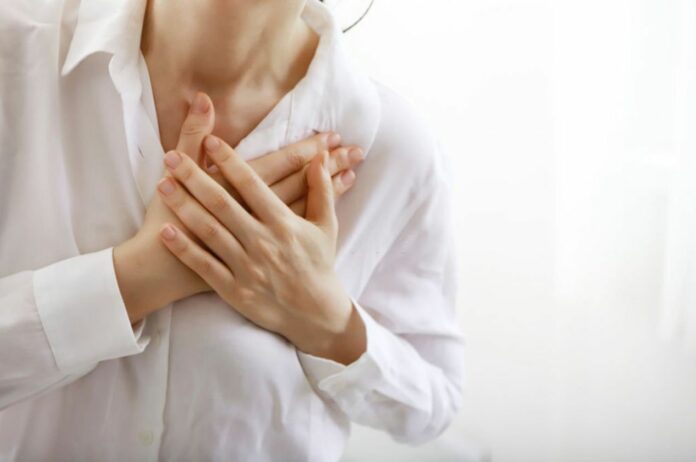Cardiac Arrest Recovery: Women Face Greater Risk of Long-Term Anxiety Than Men
Research presented today reveals that over 40% of women report experiencing anxiety four months after a cardiac arrest, in contrast to 23% of men.
The study highlights the significant emotional impact of cardiac arrest, which often occurs suddenly and without warning. Following the traumatic event, patients and their families experience a drastic shift in their daily routines, with medical investigations aimed at identifying the root cause of the cardiac arrest and determining any underlying health conditions that may require treatment. This often adds to the stress and anxiety felt by patients and their loved ones during this difficult time.
Cardiac arrest is responsible for 20% of all deaths in developed nations. This sudden occurrence results in the heart ceasing to pump blood, and if blood flow is not quickly restored, the individual becomes unconscious and dies within 10 to 20 minutes. Regrettably, less than 10% of individuals who experience cardiac arrest in the community manage to survive hospital discharge.
It is common for anxiety and depression to arise following critical illness, and these conditions have been shown to have a strong negative impact on the quality of life for both patients and their loved ones. In this study, the researchers sought to evaluate the prevalence of anxiety, depression, and post-traumatic stress disorder (PTSD) among cardiac arrest survivors, as well as to determine whether the severity of symptoms differed between men and women.
Over the course of five years, from 2016 to 2021, a study consisting of 245 patients who suffered a cardiac arrest in a community setting and were hospitalized in a coma was conducted. Of the participants, 18% were women. Psychological symptoms were evaluated during a follow-up appointment four months after the event.
The Hospital Anxiety and Depression Scale (HADS) was used to measure the severity of anxiety and depression. Patients rated the frequency and intensity of 14 symptoms, such as “I experience sudden feelings of panic,” on a scale of 0 to 3, resulting in a total score of 0 to 21 for each condition. A score of 8 to 10 indicates borderline anxiety or depression, while a score of 11 or higher signifies the presence of either condition.
Symptoms of post-traumatic stress disorder (PTSD) were assessed using the PCL-5 checklist, with participants rating 20 symptoms on a scale of 0 (“not at all”) to 4 (“extremely”), resulting in a total score of 0 to 80. A score of 31 to 33 suggests probable PTSD.
The findings of the study revealed that the average score for depression on the HADS was 2.7, while the average score for anxiety was 4.8. The scores for depression and anxiety were significantly higher in women, with scores of 3.3 and 6.1, respectively, in comparison to men, who scored 2.6 and 4.5, respectively.
Of note, 43% of women had anxiety scores of 8 or higher, compared to 23% of men. Upon closer inspection of the anxiety scores, 23% of women scored between 8 to 10, as opposed to 11% of men, while 20% of women had scores of 11 or higher, compared to 12% of men. Furthermore, women had significantly higher levels of PTSD, with a median score of 33, in contrast to men who had a median score of 26. Notably, in both men and women, anxiety was significantly associated with PTSD symptoms.
According to Dr. Kjaergaard, the study’s results provide confirmation of the persistence of psychological effects following cardiac arrest, with anxiety being particularly common in women. The findings underscore the importance of providing long-term follow-up care to cardiac arrest survivors to help identify and address any mental health concerns.
Dr. Kjaergaard encourages patients to discuss any feelings of anxiety, depression, or stress related to their cardiac arrest with their healthcare provider.
“Future studies are needed to investigate whether talking to a professional can help alleviate psychological symptoms.”
The findings of the study were presented today at the ESC Acute CardioVascular Care 2023, a scientific conference organized by the European Society of Cardiology (ESC).
Image Credit: Getty
